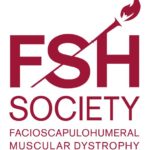Boston-based Non-profit Awards New Grants to Facilitate Search for a Cure
 BOSTON – April 5, 2017 – Today the FSH Society, a world leader in combating facioscapulohumeral muscular dystrophy (FSHD), announced it has committed $541,133 in funding to five research projects that aim to break new ground in the search for a treatment and cure for FSHD. These grants follow the Society’s record breaking $1.36 million awarded in total research funding in 2016.
BOSTON – April 5, 2017 – Today the FSH Society, a world leader in combating facioscapulohumeral muscular dystrophy (FSHD), announced it has committed $541,133 in funding to five research projects that aim to break new ground in the search for a treatment and cure for FSHD. These grants follow the Society’s record breaking $1.36 million awarded in total research funding in 2016.
“These grants are a testament to the dedication of researchers within the FSHD community committed to understanding and solving how FSHD works through high quality peer-reviewed research” said Daniel Perez, President and CEO of the FSH Society. “With these grants we look to build upon our record-breaking success in 2016, which would not have been possible without the generosity and sustained support of donors, Society management and staff, our Board members and volunteers.”
The following proposals submitted in August 2016 were approved:
- “Developing LNA-based therapy for facioscapulohumeral muscular dystrophy” Yi-Wen Chen, D.V.M., Ph.D., Children’s National Health System, Washington D.C. and Toshifumi Yokota, Ph.D., University of Alberta Faculty of Medicine and Dentistry, Alberta, Canada. ($179,104 for two years)
- Yi-Wen Chen and Toshifumi Yokota are investigating one of the most promising antisense oligonucleotides (AON) compounds called LNA (locked nucleic acid) gapmer for its efficacy in reducing DUX4 in cell culture and in a mouse model of FSHD.
- “Inhibited protein turnover and TDP-43 aggregation in FSHD pathogenesis,” Sachiko Homma, Ph.D. and Jeffrey Miller, Ph.D., Boston University, Boston, MA. ($58,920 for one year)
- Sachiko Homma and Dr. Jeffrey Miller discovered that DUX4-FL, but not DUX4-S, inhibits protein turnover and leads to abnormal ubiquitin expression and nuclear aggregation of TDP-43 (TAR DNA-binding protein 43), one of the aggregation-prone and RNA/DNA binding proteins previously associated with ALS and IBM. This research will work to identify mechanisms that underlie the DUX4-FL-induced dysregulation of proteostasis and protein aggregation as a step to understanding pathogenesis and developing therapeutic strategies for FSHD.
- “Activity of estrogen on FSHD muscle differentiation,” Fabiola Moretti, Ph.D., Institute of Cell Biology and Neurobiology – National Research Council of Italy (CNR), Rome, Italy. ($155,200 for two years)
- Recent data from Dr. Fabiola Moretti found that estrogens improve in vitro the differentiation ability of myoblasts from FSHD patients without affecting cell proliferation or survival. Dr. Moretti’s team aims to confirm this data in vivo by analyzing the effect of estrogen on the ability of transplanted human muscle-derived cells to participate in the regeneration of injured muscle in immune-deficient mice.
- “Dynamic Mapping of Perturbed Signaling Underlying FSHD,” Peter Zammit, Ph.D. Chris Banerji, Ph.D. King’s College London, London, England. ($83,207.71 for one year)
- Banerji and Zammit’s time course RNA-seq dataset of FSHD myogenesis has strongly implicated suppression of PGC1α/ESRRA mediated mitochondrial biogenesis in FSHD. Activation of this pathway in FSHD myoblasts, by nutritional supplements Biochanin A and CoQ10, rescues the atrophic myotube phenotype. By analyzing further modifiers of this pathway they hope to improve our understanding of the molecular defect in FSHD and how best to modify it to maximize patient benefit.
With these awards, the Society continues to significantly expand funding, and the search for treatments and a cure for FSHD, a disease that impacts more than 870,000 individuals worldwide. For full details and project summaries on the FSH Society’s grant awards, please visit https://www.fshdsociety.org/funded-grants/.
# # #
About the FSH Society
The FSH Society is a world leader in combating muscular dystrophy. The non-profit has provided millions of dollars in seed grants to pioneering research and clinical-research worldwide, creating an international collaborative network of patients and researchers. The FSH Society seeks to serve as a source of information and support for all patients and families with FSHD; act as a driving force in the development of research directed towards treatments and ultimately a cure; and bring support to patients and research for FSHD through effective engagement of governmental and private sector organizations and entities. For nine consecutive years, the Society has received the Charity Navigator’s four-star rating, the highest distinction held by less than two percent of non-profit organizations in the country. The FSH Society offers a community of support, news and information for FSHD patients and families through its website at https://www.fshdsociety.org. For more information about FSHD research programs, please contact the Society at 781-301-6650.
Press Contact:
June Kinoshita: The FSH Society, 781.301.6649; june.kinoshita@fshdsociety.org
Theresa Masnik: SHIFT Communications, 617.779.1871; FSHSociety@shiftcomm.com


Leave a Reply